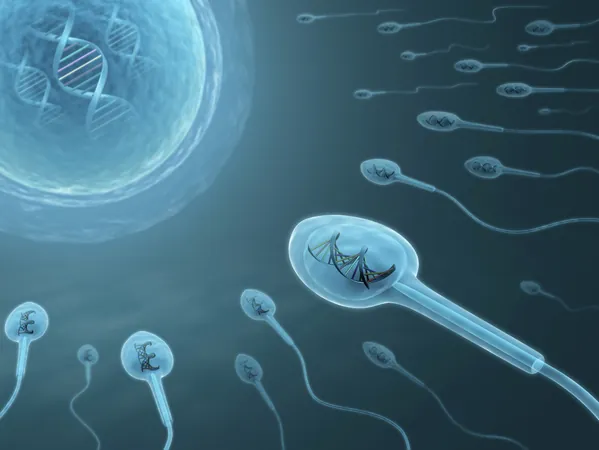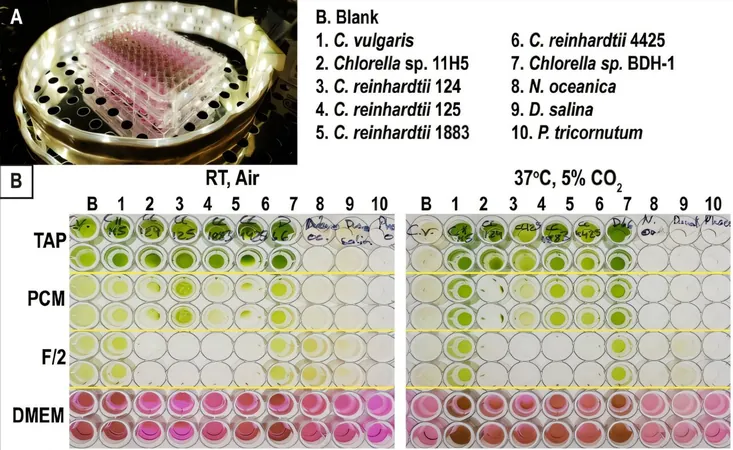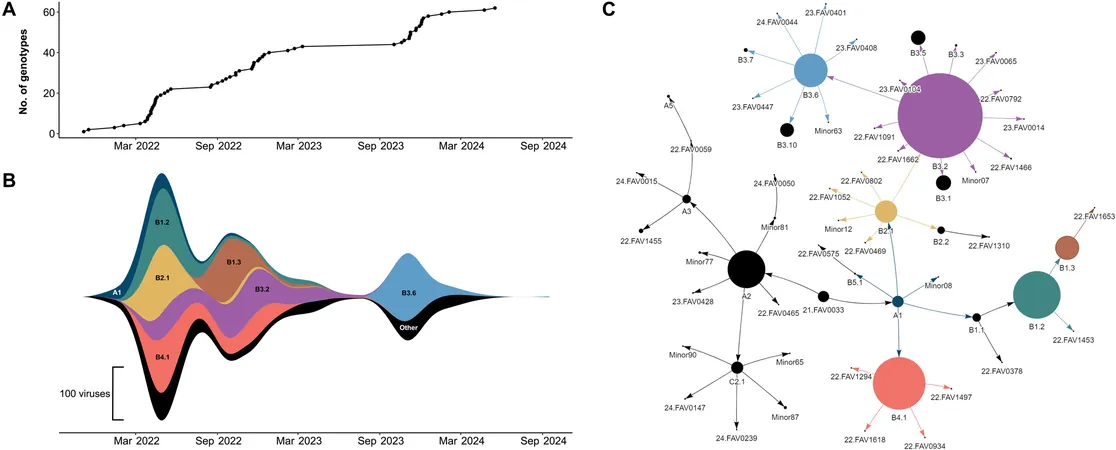
Urgent Call for Change: Cancer-Causing Mutation in Sperm Donor Sparks Regulation Debate in Europe
2025-05-28
Author: Jia
A Scare in Sperm Donation
A shocking discovery has uncovered a cancer-causing mutation in a sperm donor, igniting urgent calls for stricter regulations on sperm donation across Europe. Although the donor himself is healthy, his biological children are now at significant risk of developing Li-Fraumeni syndrome, a genetic disorder that dramatically increases cancer susceptibility.
Genetic Revelations Highlight Risks
Recent research involving 67 children from 46 families in eight European countries revealed that 23 of them carry this dangerous variant, and 10 have already been diagnosed with cancer. The stark contrast in laws governing sperm donation in different countries spurs the conversation about the necessity for unified regulations.
Expert Opinions Demand Change
At the European Society of Human Genetics annual conference, Dr. Edwige Kasper from Rouen University Hospital voiced her concerns regarding the cross-border disparities in sperm donation laws. "We need comprehensive regulation at a European level to prevent future occurrences and to limit the number of offspring per donor globally," she emphasized.
A Wake-Up Call for Genetic Oversight
Dr. Alexandre Reymond, chair of the conference, highlighted the importance of learning from this incident to inform policy. He stated, "This case exemplifies the urgent need for broader oversight in assisted reproduction practices. Knowledge gained in one nation should benefit prospective parents everywhere."
Crucial Genetic Counseling Needed
In 2023, a French doctor reported a concerning finding from a sperm bank, linking a previously identified “variant of unknown significance” in the TP53 gene to cancer risks. Dr. Kasper's analysis concluded that the mutation was likely cancer-causing, signaling the need for genetic counseling for children conceived from this donor.
Monitoring and Early Detection Efforts
As researchers continue to track similar cases, 67 children born from this donor between 2008 and 2015 are under rigorous monitoring. Follow-up protocols include extensive imaging procedures and clinical evaluations designed for early cancer detection, significantly enhancing the chances of survival for those at risk.
A Path Forward for Parents
Dr. Kasper advises prospective parents in France to opt for medically assisted procreation within the country’s regulated system, which offers anonymous and voluntary donation. Here, strict rules ensure that each donor can contribute to a maximum of ten births, significantly reducing the risk of passing on genetic disorders.
Conclusion: A Call for Action
This alarming situation serves as a poignant reminder of the gaps in oversight regarding sperm donation in Europe. As the urgency for reform intensifies, the health and safety of countless future children hang in the balance, underscoring the need for immediate action.





 Brasil (PT)
Brasil (PT)
 Canada (EN)
Canada (EN)
 Chile (ES)
Chile (ES)
 Česko (CS)
Česko (CS)
 대한민국 (KO)
대한민국 (KO)
 España (ES)
España (ES)
 France (FR)
France (FR)
 Hong Kong (EN)
Hong Kong (EN)
 Italia (IT)
Italia (IT)
 日本 (JA)
日本 (JA)
 Magyarország (HU)
Magyarország (HU)
 Norge (NO)
Norge (NO)
 Polska (PL)
Polska (PL)
 Schweiz (DE)
Schweiz (DE)
 Singapore (EN)
Singapore (EN)
 Sverige (SV)
Sverige (SV)
 Suomi (FI)
Suomi (FI)
 Türkiye (TR)
Türkiye (TR)
 الإمارات العربية المتحدة (AR)
الإمارات العربية المتحدة (AR)